SMALL AXE AND BIG TREE: BOB MARLEY’S LEGACY
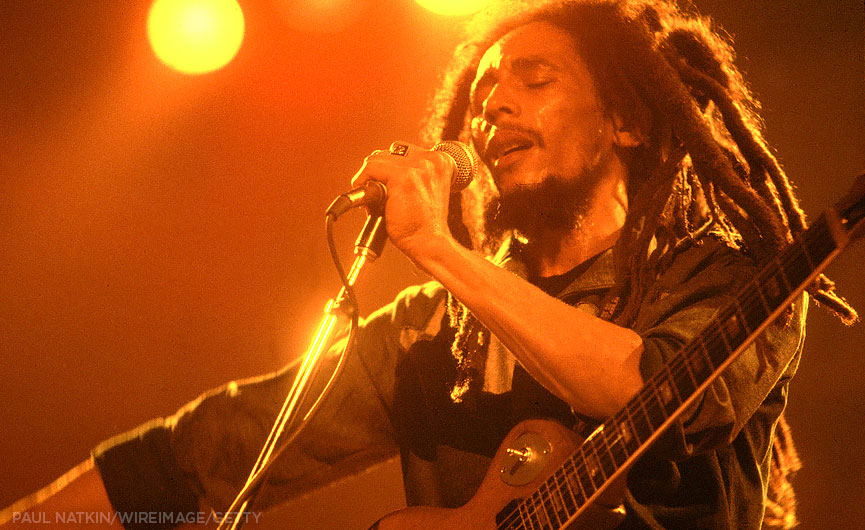
REMEMBERING BOB MARLEY AS THE REVOLUTIONARY HE WAS, NOT JUST A GANJA-LOVING ENTERTAINER.
Born February 6, 1945, and departing this world at only 36 years old, Bob Marley left a permanent impression through his musical and sociopolitical contributions.
‘AFRICA UNITE’
It was midnight on April 18, 1980. One year before Bob Marley’s untimely death, and just over 100 years since the Berlin Conference (when Africa was divided by colonial European powers), Zimbabwe (formerly Rhodesia) declared its independence from the United Kingdom.
Zimbabwe was the last African colony to gain independence from a European colonial power since the decolonization movement began after World War II. The liberation of Zimbabwe, therefore, represented the final liberation of Africa itself.
As the British flag was lowered, the throng of people pulled back, craning their necks to watch the red, gold, green and black flag of Zimbabwe rise. The crowd roared. And then someone stepped up to a microphone and said the first words spoken in the newly independent Zimbabwe:
“Ladies and gentlemen, Bob Marley and the Wailers!”
‘LET’S GET TOGETHER AND FEEL ALL RIGHT’
In 1984 Island Records released a greatest hits collection of Bob Marley’s music titled Legend, which went on to become the best-selling reggae album of all time. Though the record contains a few of Marley’s political songs, the majority of the tracks are more commercial, the kind of feel-good music usually associated with Marley: “Is This Love?” “Three Little Birds,” “Stir it Up,” “Jammin’” and “Waiting in Vain.” This is the Bob Marley casual listeners are most familiar with, but it downplays Marley’s intensely political side.
Sadly, reggae music is often reduced to something that white college students listen to while getting high or that Jamaican tourist boards use in cheesy promotional videos, but the history of reggae and specifically Bob Marley, its most recognizable face and voice, reveals a complex set of contradictions, a deep music of rebellion and freedom, and an art form of resistance.
To understand Bob Marley — and reggae itself — is to go beyond the Legend.
‘WON’T YOU HELP TO SING THESE SONGS OF FREEDOM?’
SIGN WELCOMES VISITORS TO TRENCH TOWN, THE HOME NEIGHBORHOOD OF BOB MARLEY IN KINGSTON, JAMAICA. VIA RATIBA HAMZAOUI / AFP / GETTY IMAGES
Since their arrival in the Caribbean, people of African descent, forced to inherit the traditions of European religion, language and culture, often adopted those same traditions for their own revolutionary purposes, and Bob Marley was no exception.
His religion, formative not only in his consciousness but in his musical, spiritual and political message, was Rastafarianism, a cultural composite of Christianity and African-derived cosmology (with a dash of Judaism). Rastas at once renamed God — Jah — while at the same time using a shortened, adapted form of his true name from the Hebrew Bible — Yahweh.
Marley’s language, a vernacular patois, resisted “Babylon System” on a linguistic level in both his spoken interviews and lyrics. Rather than understand his oppressors, for instance, Marley was much more interested in overstanding his downpressors. While he technically spoke English, Marley’s dialect acted as a sort of counter-discourse to the dominant discourse of the ruling class — a language not to represent reality but to create it.
Marley’s music, reggae, is a blend of modern Western styles and African rhythms and forms, a brand-new genre that could only have been created in the unique historical crucible of Jamaica. Marley’s biographer, Stephen Davis, writes, “Reggae is Jamaican soul music.” Heavily influenced by Jimi Hendrix, Sly and the Family Stone, and the music of Stax and Motown Records, Marley combined these influences with the traditional rhythms of Rastafarian drumming based on burra, one of the oldest Jamaican musical forms practiced in Trench Town. The resulting music appealed to broad audiences while retaining its revolutionary potential.
Bob Marley participated in a long tradition of coded religious, linguistic and cultural resistance dating back to slavery. His political message was presented in a way that eluded — and even pleased — the ruling class, and he was so successful at constructing his musical Trojan horse that the subtle nuances of his Pan-Africanism are usually glossed over or forgotten.
‘IT’S NOT ALL THAT GLITTER IS GOLD, AND HALF THE STORY HAS NEVER BEEN TOLD’
BOB MARLEY AND THE WAILERS ARRIVE AT BIRMINGHAM ODEON, UK, JULY 19, 1975 / PHOTO BY IAN DICKSON / REDFERNS / GETTY IMAGES
Bob Marley’s face, commodified on everything from flags to T-shirts to sticks of incense, is an icon as recognizable as almost any major religious or political figure in history, but he is usually seen as a pop star first and a revolutionary second — if at all.
In October of 1975 the Jamaican Tourist Board released a memorandum: “We obviously face a contradiction between the message of urban poverty and protest which reggae conveys and that of pleasure and relaxation inherent in our holiday product. In short, when we promote reggae music we are promoting an aspect of Jamaican culture which is bound to draw attention to some of the harsher circumstances of our lives.”
Because reggae music is so ebullient and pleasant, it makes you want to dance, to sit on a tropical beach drinking a fruity cocktail, forgetting your troubles. And because of the idiomatic and vernacular quality of Marley’s language, it’s easy to forget that the lyrics of his songs are often sermons preaching a messianic message of resistance and emancipation from oppression. This is just one of the many contradictions Bob Marley embodied during his short life.
An interesting incongruity arises when Marley sings, “Babylon System is the vampire / sucking the blood of the sufferer,” while playing for “Babylonian” audiences, making money for “Babylonian” record executives and, ultimately, with his success, moving out of his poor Trench Town residence to a more palatial estate uptown on Hope Road. The story grows even more complicated, though, as Marley, “never comfortable as a multimillionaire…gave money away to friends and favorite causes by the hundreds of thousands,” according to Davis. Biographer Gregory Stephens writes, “Lines of Jamaicans seeking handouts would stretch from his Hope Road residence out into the streets, and Marley would listen to each one’s story, usually giving them what they wanted.” With Bob Marley, it was hard to say where “profit” ended and “prophet” began.
By allowing white record producers to hire white studio musicians to perform overdubs on his Island Records debut Catch a Fire, Marley drew criticism from people who called him a sellout, but the exposure helped him achieve international renown, spreading the message of Rastafarianism to the ends of the Earth and bankrolling his own unofficial social welfare programs in Jamaica.
‘AFRICANS A-LIBERATE ZIMBABWE’
The penultimate album Bob Marley released in his lifetime was originally going to be called Black Survival. Though the name was changed to Survival by Marley’s record label, the album cover depicts 48 African flags, and the word SURVIVAL is superimposed over an engraving of the Brookes slave ship, so the album’s militant Pan-African focus remains clear. Featuring tracks like “So Much Trouble in the World,” “Babylon System,” “Africa Unite” and “Zimbabwe,” it represents Marley’s strongest political statement.
Every man got a right to decide his own destiny
And in this judgment there is no partiality
So arm in arms, with arms, we’ll fight this little struggle
’Cause that’s the only way we can overcome our little trouble
Brother, you’re right, you’re right, you’re right, you’re right, you’re so right
We gonna fight, we’ll have to fight, we gonna fight, fight for our rights
And with these words, Bob Marley, the chilled-out international superstar and king of cannabis, announced his support for revolution.
When these lyrics came around in the chorus, the newly liberated Zimbabweans sang at full voice the unofficial national anthem of their deliverance from colonial oppression, and Bob Marley cemented his legacy as an influential figure in the African diaspora. His revolutionary message continues to stir listeners and influence artists today.
By Article BRADLEY DON RICHTER
SUBSCRIBE TO THE REGGAE BRITANNIA CAMP
Comments
-
 Previous Hollie Cook Returns with More Dreamy Reggae Rhythms on ‘Vessel of Love’
Previous Hollie Cook Returns with More Dreamy Reggae Rhythms on ‘Vessel of Love’ -
 Next Watch The Video For Sting And Shaggy’s New Single ‘Don’t Make Me Wait’
Next Watch The Video For Sting And Shaggy’s New Single ‘Don’t Make Me Wait’
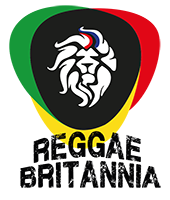






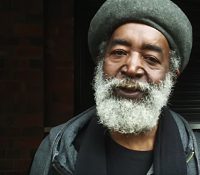

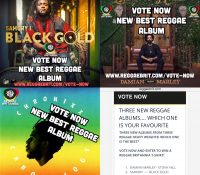

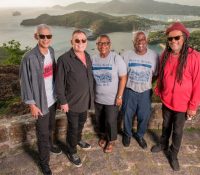

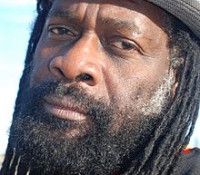
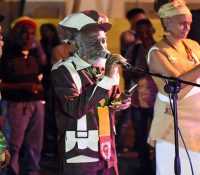


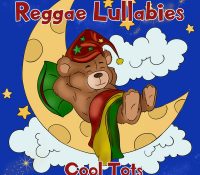
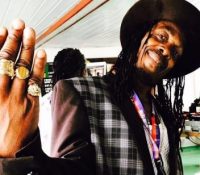






















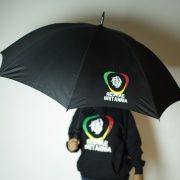



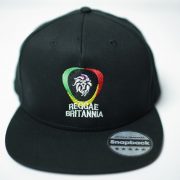
0 thoughts on “SMALL AXE AND BIG TREE: BOB MARLEY’S LEGACY”